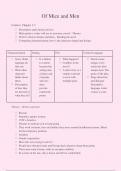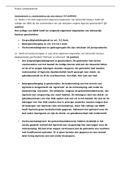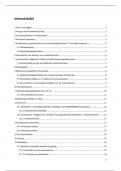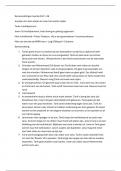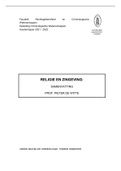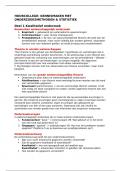Akpinar, E., J. Berger (2017) Valuable virality. Journal of Marketing Research, 54, 318-
330
Introduction
Brands pay more attention to earned media; shares → virality. Content aspects that increase sharing
(funny/entertaining) seem to decrease effectiveness. How to create then valuable virality? Two types
of outcomes: shareability and purchases.
Theoretical framework
Companies embrace WOM marketing, because it’s cheap and effective. Two things needed: (1)
consumers must talk/share the content; (2) the content has to create value for the brand. Gap in
literature to fill: integrate both sharing and creating value.
Different types of advertising appeals may have different effects of shares and brand
evaluation/purchase. Two types of ad appeals: emotional and informative. Compared with
informative appeals (focus on product features/attributes/benefits), emotional appeals (use drama,
mood, music) are more likely to me shared. Informative appeals boast brand evaluations and
purchase more, because the brand is integral in the ad and the information feels less manipulative. Is
there a way to achieve both benefits?
Research
We suggest that emotional brand-integral ads are best: more favourable inferences about persuasion
(perceived as fair, because of brand information) and more brand knowledge (because of brand
information and information about brand personality), while not reducing sharing (because of the
emotional part).
Now, only 20% of emotional ads is integral. need to know the difference between brand integration
and brand presence. Now we compare three ad types: emotional integral, emotional non-integral,
informative.
Field observation of viral ads
Analysis of 240 of ads from Unruly. Analysed the following variables:
• Amount of sharing in the first six months
• Being informational vs. emotional
• Level of integration
• Control variables: ad characteristics (length, language, humour, celebrity presence), brand
and product characteristics (search/experience product, brand presence, product
involvement, brand equity, global/local)
Results:
• Companies tend to trade off between emotional ads and integration.
• Emotional ads are shared more than informative ads.
• Informative ads are shared more when integral. But integration in emotional ads does not
decrease shares.
• Some control variables (i.e. celebrity presence and having a large Facebook community)
increases shares. Overall, the effects stay the same with the control variables.
• Brand presence and brand integration are not correlated. Brand presence in informative ads
does decrease shares, but this effect disappears for emotional ads.
330
Introduction
Brands pay more attention to earned media; shares → virality. Content aspects that increase sharing
(funny/entertaining) seem to decrease effectiveness. How to create then valuable virality? Two types
of outcomes: shareability and purchases.
Theoretical framework
Companies embrace WOM marketing, because it’s cheap and effective. Two things needed: (1)
consumers must talk/share the content; (2) the content has to create value for the brand. Gap in
literature to fill: integrate both sharing and creating value.
Different types of advertising appeals may have different effects of shares and brand
evaluation/purchase. Two types of ad appeals: emotional and informative. Compared with
informative appeals (focus on product features/attributes/benefits), emotional appeals (use drama,
mood, music) are more likely to me shared. Informative appeals boast brand evaluations and
purchase more, because the brand is integral in the ad and the information feels less manipulative. Is
there a way to achieve both benefits?
Research
We suggest that emotional brand-integral ads are best: more favourable inferences about persuasion
(perceived as fair, because of brand information) and more brand knowledge (because of brand
information and information about brand personality), while not reducing sharing (because of the
emotional part).
Now, only 20% of emotional ads is integral. need to know the difference between brand integration
and brand presence. Now we compare three ad types: emotional integral, emotional non-integral,
informative.
Field observation of viral ads
Analysis of 240 of ads from Unruly. Analysed the following variables:
• Amount of sharing in the first six months
• Being informational vs. emotional
• Level of integration
• Control variables: ad characteristics (length, language, humour, celebrity presence), brand
and product characteristics (search/experience product, brand presence, product
involvement, brand equity, global/local)
Results:
• Companies tend to trade off between emotional ads and integration.
• Emotional ads are shared more than informative ads.
• Informative ads are shared more when integral. But integration in emotional ads does not
decrease shares.
• Some control variables (i.e. celebrity presence and having a large Facebook community)
increases shares. Overall, the effects stay the same with the control variables.
• Brand presence and brand integration are not correlated. Brand presence in informative ads
does decrease shares, but this effect disappears for emotional ads.


